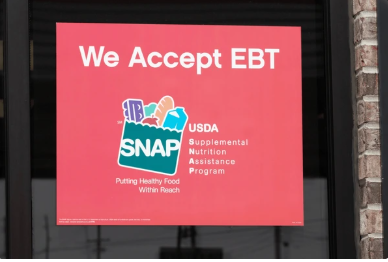Government Shutdown Puts Critical Nutrition Benefits at Risk for Students Across the State
WAYNE COUNTY, N.C. — Millions of North Carolina families face an unprecedented crisis as the ongoing government shutdown threatens to halt Supplemental Nutrition Assistance Program (SNAP) benefits this weekend. The lapse in funding could leave hundreds of thousands of children without access to regular, nutritious meals both at home and at school.
The impact comes as the Trump Administration has declined to release existing contingency funds that would allow the program to continue operating during the shutdown, a decision that advocates say will have devastating consequences for the state’s most vulnerable residents.
SNAP’s Critical Role in North Carolina
SNAP funding has brought nearly $3 billion into North Carolina, helping more than one million residents afford basic groceries. The program primarily serves the state’s most vulnerable populations, with four in five SNAP households including a child, senior, or adult with a disability.
According to data from participating households:
- 50% include children
- 45% include individuals with a disability
- 36% include older adults
The program addresses a significant need in a state where 12.5% of residents live below the poverty line—the 17th highest poverty rate in the nation. North Carolina also ranks 15th nationally in child poverty, with more than 374,000 children, or 16.2%, living in poverty.
School Meal Programs in Jeopardy
Beyond home food security, the shutdown threatens critical school nutrition programs that North Carolina students depend on daily. The Federal School Lunch Program, Federal School Breakfast Program, and Community Eligibility Provision (CEP) all rely on federal reimbursements to provide free and reduced-price meals to students.
More than 1,600 schools across North Carolina adopted CEP during the 2023-2024 school year, benefiting over 800,000 students. Without federal support, these schools could struggle to continue offering universal meals, particularly challenging as many districts are already operating without a finalized state budget.
If funding is delayed or halted, school districts will be forced to cover meal costs independently—an unrealistic expectation given current budget constraints. Students from families who also rely on SNAP benefits face heightened risk of food insecurity both at home and at school.
Call for Immediate Action
“These benefits are literal lifelines for North Carolinians. Without them, families will struggle to put food on the table. No one deserves to go hungry—especially our children,” said Tamika Walker Kelly, President of the North Carolina Association of Educators. “The potential loss of these benefits means kids could lose access to food not just at home, but at school as well. There’s only one word for that: unacceptable.”
The North Carolina Association of Educators is calling on the Trump Administration and the U.S. Department of Agriculture to immediately release contingency funds and maintain SNAP benefits for families in need across the country.
The North Carolina Association of Educators is the state’s leading voice for educational excellence, representing public school employees across all 100 counties, including teachers, classified school staff, administrators, students, retirees, and community allies.

